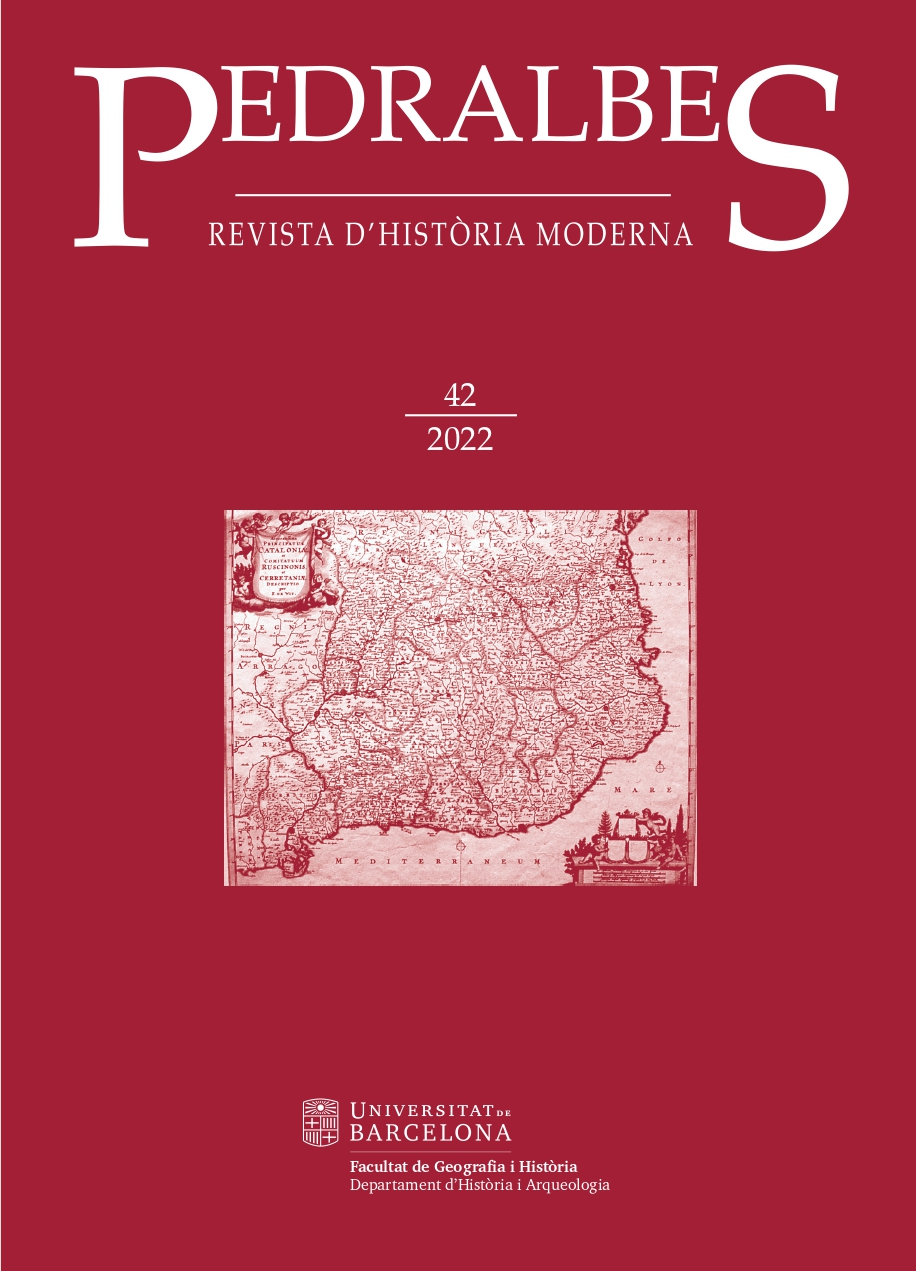Unidad, desigualdad, comunidad. Las crisis de gobernanza urbana de 1520 y la constitución del orden comunero
DOI:
https://doi.org/10.1344/pedralbes2022.42.8Keywords:
Comunidades of Castile, urban governance, revocability of office, stratified organisations.Abstract
Unity, inequality, community. The urban government crises of 1520 and the constitution of the comunero order
This article adopts a dual method – retrospective and prospective – in order to circumvent imperceptible anachronisms in the study of the political condi tions at the urban scale of the Castilian uprising of 1520. The text first propos es an interpretive framework centered on the category of mats established in the comunero capitals and in the urban juntas of 1808. This approach helps identify the appropriation of the capacity to designate all pub lic offices by the urban community as a precondition of the new communal governance, and defines as its axes the revocability of governors and the ca pacity for representation of the stratified organisations – of taxpayers and the privileged – in the urban juntas; finally, the conclusions offer a reflection on the Comunidades of Castile as a moment of potentially absolute politics, which makes it possible to overcome the traditional/modern dichotomy.
Downloads
Published
How to Cite
Issue
Section
License
LicenseAuthors must agree with the following terms:
1. The author keeps authorship rights, ceding the journal the right to first publication.
2. Texts will be disseminated with a Creative Commons Attribution 4.0 International License. Which allows for the work to be shared with third parties, as long as they recognise the work’s authorship, the original publication in the journal and licensing conditions.
This requires acknowledging authorship appropriately, providing a link to the license, and indicating if any changes have been made. It can be indicated in any reasonable way, but not in a manner that suggests the licensor endorses or sponsors the use of the text.
If content is remixed, transformed, or new content is created from the journal's texts, it must be distributed under the same license as the original text



